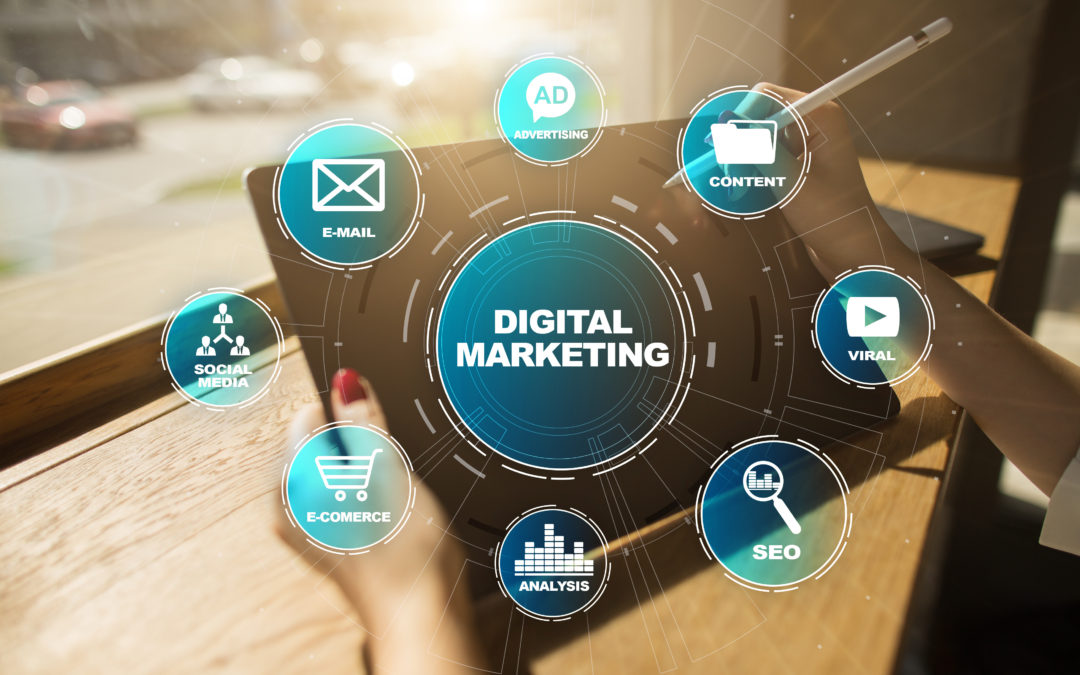Digital marketing refers to the use of digital channels, such as search engines, social media, email, and websites, to promote a brand, product or service. It’s an approach that leverages the latest technology to connect businesses with their target audience and achieve their marketing objectives.
One of the biggest advantages of digital marketing is the ability to reach and engage with a large, targeted audience at a fraction of the cost of traditional marketing methods. Digital marketing also allows for real-time tracking and measuring of the success of marketing campaigns, making it easier to refine and improve strategies as needed.
Types of Digital Marketing
Search Engine Optimization (SEO) is the process of optimizing a website to rank higher in search engine results. This is done by using keywords in content, meta descriptions, and other website elements to make it easier for search engines to understand what the website is about. As a result, a website that has been optimized for search engines is more likely to be found by users who are searching for the products or services it offers.
Social Media Marketing is a form of digital marketing that involves creating and sharing content on social media platforms, such as Facebook, Twitter, Instagram, and LinkedIn. The goal of social media marketing is to build brand awareness, increase engagement, and drive traffic to a website. Social media marketing also allows businesses to interact directly with their audience, making it an effective way to gather feedback, address concerns, and build relationships with customers.
Email Marketing is a direct marketing method that uses email to promote a product or service. It can be used to nurture leads, build relationships, and drive sales. Email marketing is a cost-effective way to reach a large audience, as it does not require any printing or postage costs. However, it’s important to ensure that the emails being sent are relevant and engaging, as recipients are more likely to mark them as spam if they are not.
Content Marketing is the process of creating and sharing valuable, relevant, and consistent content to attract and retain a clearly-defined audience and drive profitable customer action. This can include blog posts, videos, infographics, and other types of content that can educate and inform the target audience. The goal of content marketing is to build trust and credibility with the target audience, and eventually drive them to take a specific action, such as making a purchase or signing up for a newsletter.
Pay-Per-Click (PPC) Advertising is a form of digital marketing where businesses pay a fee each time a user clicks on one of their ads. This is a quick way to drive traffic to a website, as the ads can be displayed at the top of search engine results for specific keywords. PPC advertising is also highly targeted, as the ads can be displayed only to users who are searching for specific products or services.
Influencer Marketing is a form of marketing that leverages the popularity and influence of individuals who have a large following on social media platforms, such as Instagram, Twitter, and YouTube. The goal of influencer marketing is to promote a brand, product or service by having the influencer share content with their followers. This can be a powerful way to reach a large, targeted audience, as the influencer’s followers trust their opinions and recommendations.
Digital marketing is a constantly evolving field, and it’s important for businesses to stay up-to-date with the latest trends and best practices. One of the biggest challenges of digital marketing is the need to measure and track the success of marketing campaigns. This requires the use of analytics tools, such as Google Analytics, to track website traffic, conversions, and other key metrics.

